Even in the colder months, as autumn and winter sweep across Britain, our high hills, uplands and mountains offer a home to a variety of mammals and birds.
From soaring golden eagles in the Scottish Highlands to the Lake District's roaming red deer, we take a look at some the UK's hardiest upland wildlife.

Discover some of Britain's hardiest animals with our guide to mountain, hill and upland-dwelling wildlife.
Golden eagle
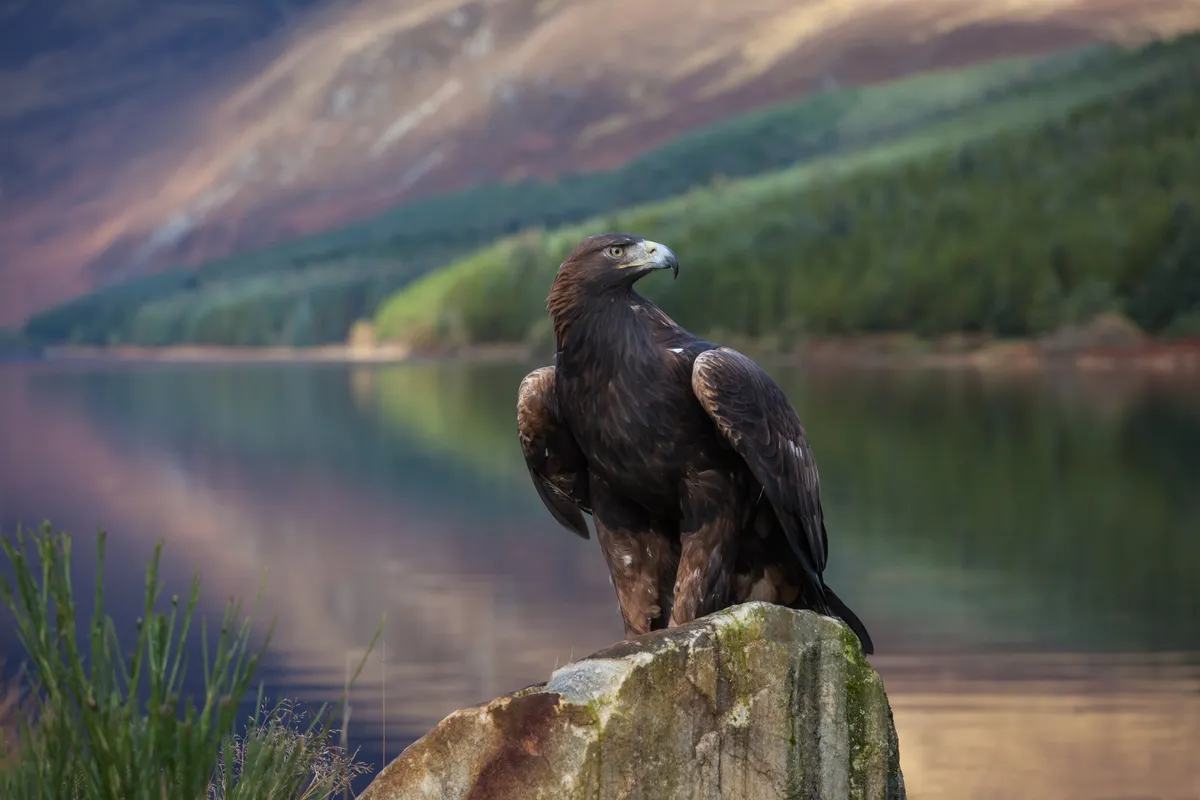
Conservation efforts over the past few years have resulted in a rise in golden eagle numbers across the Scottish Highlands and Hebrides. These huge birds of prey live in remote uplands and glens, hunting mountain hares, rabbits and grouse. Look for a long tail and broad wings that span more than two metres.
You may also like:
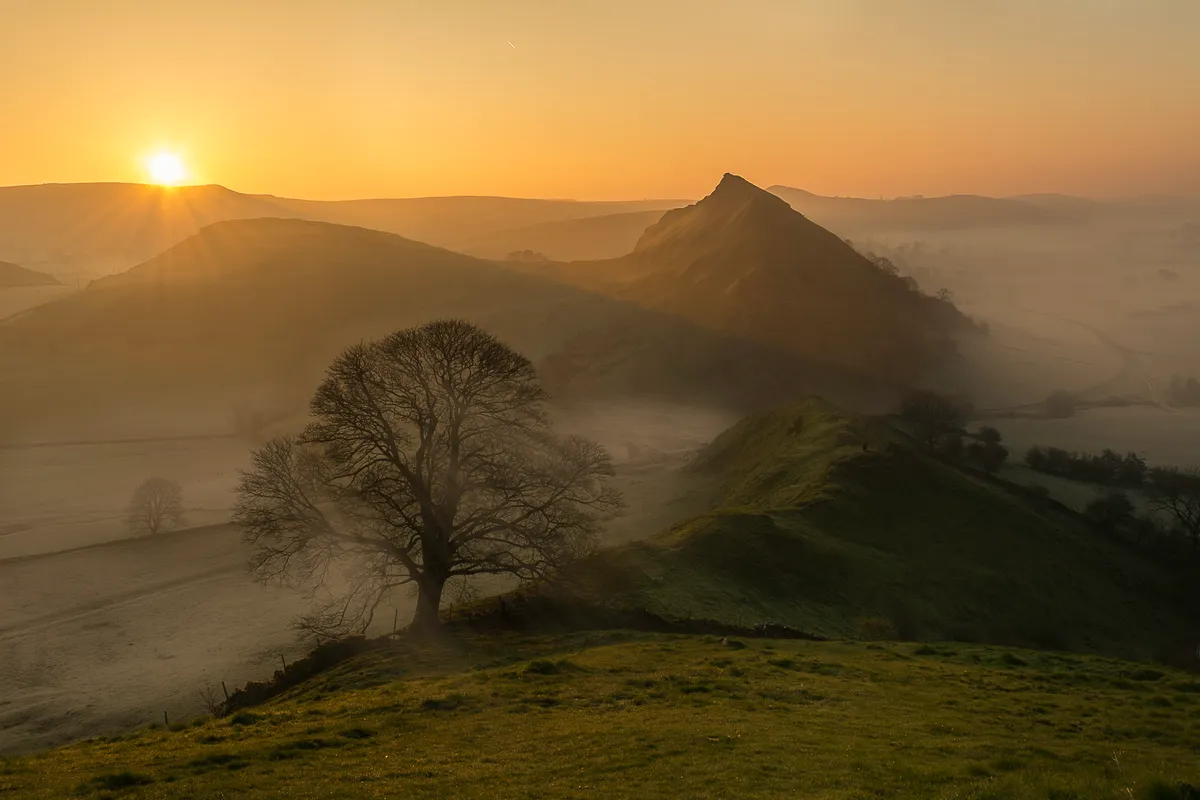
Red grouse
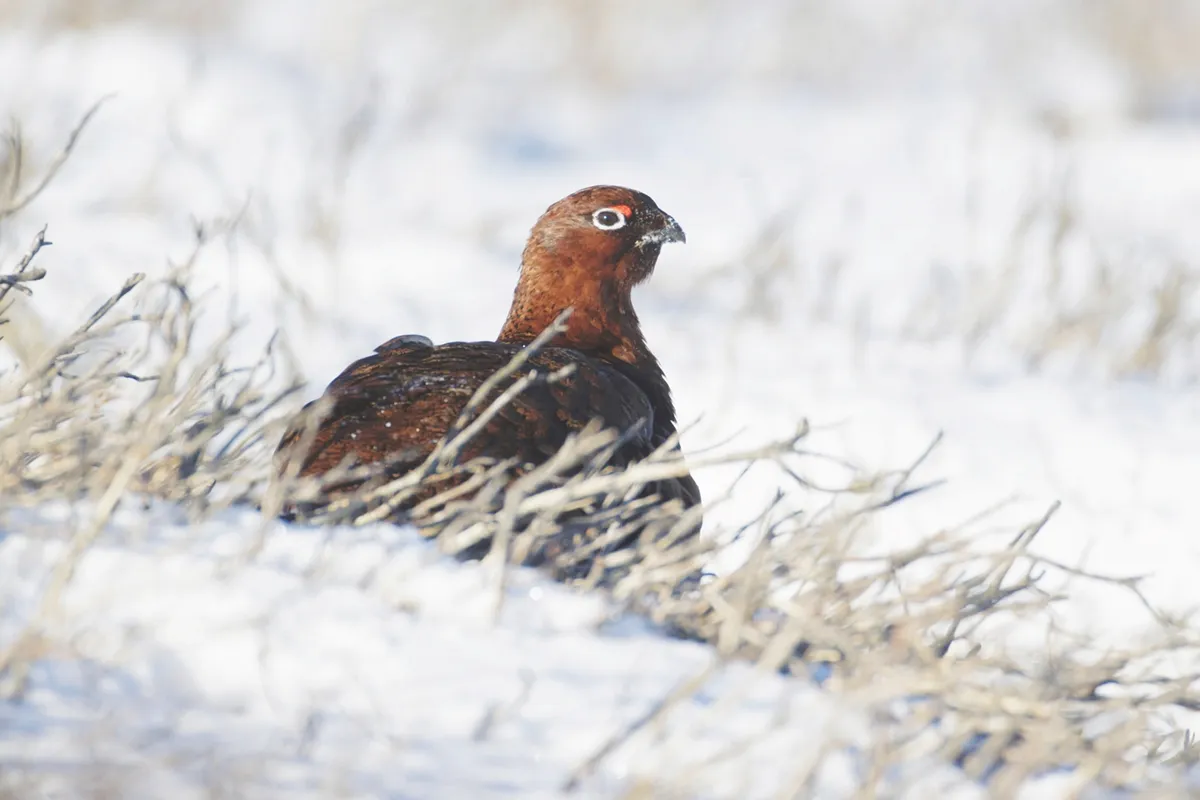
Reddish-brown feathers, a short, hooked bill and red ‘eyebrows’ make this medium-sized grouse one of our most distinctive hill-dwelling animals (you may also recognise it from the Famous Grouse whisky label). Red grouse are all-year-round residents of upland heath moors, found most notably in north-west England, Scotland and western Northern Ireland.
Mountain hare

Native to Scotland and introduced to several spots in northern England, mountain hares reside most commonly on upland heathland. They are a little larger than rabbits with a white winter coat that helps conceal them from predators.
Guide to Britain's rabbits and hares
Red deer
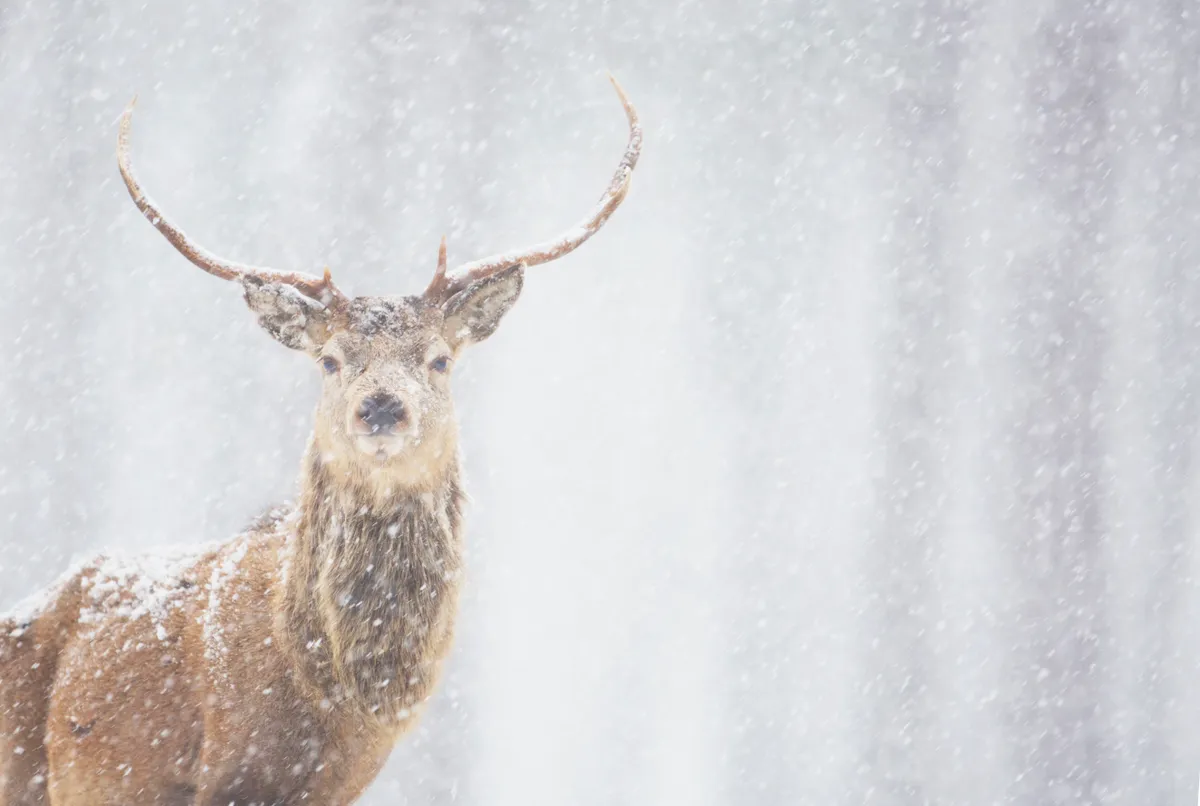
The UK’s largest land mammal, a red deer can weigh up to 200kg. Red deer are often found in forests but also adapt well to upland areas, with populations in the Lake District, south-west England and Scotland. Look for large, sheep-like hoof-marks in the snow for a sign that one is close.
British deer guide
Ptarmigan
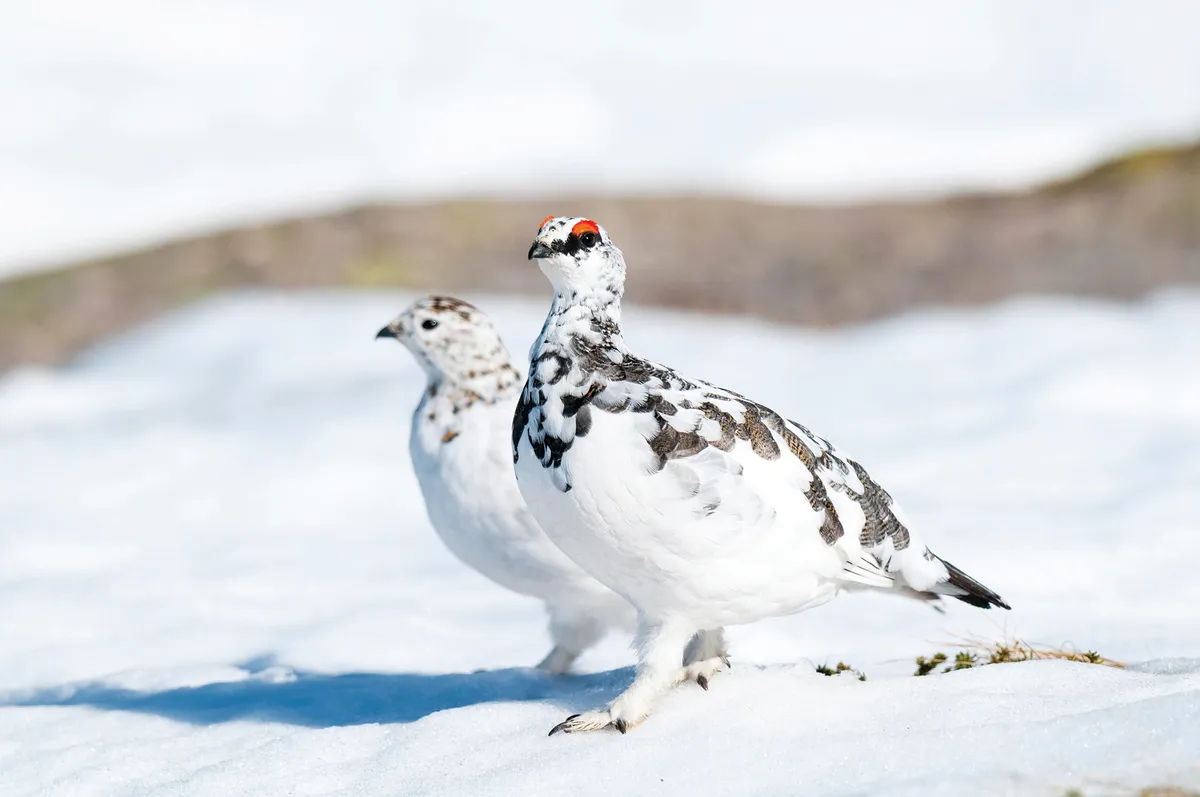
These elusive plump grouse live solely in the high hills and mountains of Scotland, eating shoots, leaves, berries and insects. As winter approaches, ptarmigans lose their grey-brown summer plumage and turn almost completely white. They may seek shelter along forest edges in severe weather.
Discover more winter wildlife wonders
Peregrine falcon
Slate-grey with a white, barred underside, peregrines live in upland areas throughout Britain but can also be seen on coastal cliffs and in urban environments. The peregrine is our largest falcon and can reach speeds of up to 200km per hour during a ‘stoop’, as it hunts for pigeons and doves in mid-air.
Guide to Britain's birds of prey
Feral goat
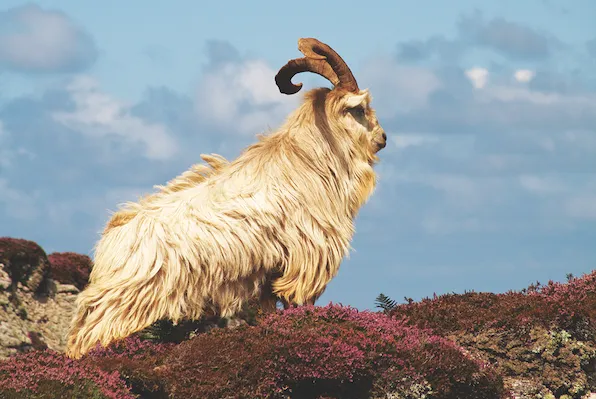
Brought here in Neolithic times as domestic stock, isolated herds of feral goats now live wild across Britain, namely Northumberland, Exmoor, Snowdonia and the Scottish islands. An unerring ability to balance on steep rock ledges coupled with a mop of thick hair makes them one of our most adept mountain creatures.